Les dossiers du CERI
Following the schedule of world events (upcoming elections, conflicts, disasters, strategic issues, treaties signatures…), the Dossiers offer to an informed and eager audience a scientific view on international news, which are often complicated to interpret. Each issue revolves around a theme edited by a researcher from the CERI and with written contributions from other researchers and doctoral candidates. The Dossiers are published electronic files accessible by everyone.
Publishing manager: Corinne Deloy
ISSN : 2268-0632
03/2024
-
 The Disappearing of Algeria’s Hirak
The Disappearing of Algeria’s Hirak
Edited by : Luis Martinez and Rasmus Alenius Boserup
Ten years after the “Arab Uprisings”, a peaceful mass protest movement abruptly emerged in Algeria. In an astonishing show of force, the so-called Hirak exponentially grew from a few thousand protesters in the capital in early February 2019 to hundreds of thousands of protesters in all major Algerian cities. Inspired by the peaceful regime changes in Tunisia in 2011 and in Sudan after the dismissal of Omar el-Bashir in 2019, the protestors called for a regime change and for an establishment of a democratic system based on the rule of law.
With the Hirak, Algeria’s civil society demonstrated remarkable energy and creativity, both online and in the streets. Actors from civil society including judges, feminists, artists, journalists, independent trade unionists, and academics worked together to create a powerful political dynamic. This dynamic was not matched by capable politicians, however. And as the movement failed to transform itself into a formal political actor, the existing state elites—and in particular the military establishment—came to dominate the political scene.
Through six thought-provoking contributions, this new Dossier du CERI gathers specialists of Algerian politics, economy, military, media and society to explore what we have called The Disappearing of the Algerian Hirak…The Disappearing of Algeria’s Hirak - (epub) - format pdf
Edited by : Luis Martinez and Rasmus Alenius Boserup
10/2023
-
Propos recueillis par Corinne Deloy
-
Propos recueillis par Corinne Deloy
-
Propos recueillis par Corinne Deloy
-
Propos recueillis par Corinne Deloy
-
Quentin Couvreur
-
Propos recueillis par Corinne Deloy
-
Propos recueillis par Corinne Deloy
-
Propos recueillis par Corinne Deloy
-
Propos recueillis par Corinne Deloy
-
Propos recueillis par Corinne Deloy
-
Propos recueillis par Corinne Deloy
04/2023
-
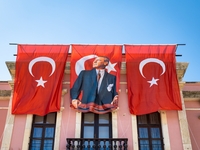 Presidential and parliamentary elections on 14 May 2023: the return of democracy in Turkey?
Presidential and parliamentary elections on 14 May 2023: the return of democracy in Turkey?
Edited by Bayram Balci and Nicolas Monceau
2023 is a crucial year in Turkey for two reasons. It marks one hundred years since the Republic of Turkey was founded by Mustafa Kemal, known as Atatürk, in 1923, and this anniversary is an opportunity for the country to take stock of its political, economic, social, cultural, and indeed international situation. 2023 is also a key electoral year, with both presidential and parliamentary elections being held on 14 May.
04/2022
-
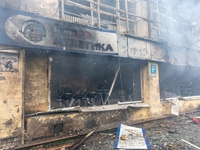 Ukraine: Putin's War
Ukraine: Putin's War
Edited by Anne de Tinguy
The "special military operation" launched in Ukraine on 24 February by Vladimir Putin is in fact a high-intensity war that marks a tipping point. One month after the beginning of the offensive, the result expected by the Kremlin does not seem to have been achieved. The human and material toll is extremely high. Why has Russia engaged so violently in an operation that seems likely to produce only casualties? Is this war the symptom of a neo-imperialism that continues to permeate Moscow's view of Ukraine thirty years after the collapse of the Soviet empire? Is it the result of a conflict between two development models, the authoritarian and conservative one carried by Russia and the democratic and liberal one carried by the West?This Dossier du CERI focuses on the stakes and consequences of this conflict.
-
Propos recueillis par Corinne Deloy
-
Simon Reich, Professor (Division of Global Affairs, Rutgers University, USA) et chercheur associé au CERI
-
Propos recueillis par Corinne Deloy
-
Nadiia Koval (Head of Research and Analysis, Ukrainian Institute) and Oleksandra Gaidai (Head of Academic Programmes, Ukrainian Institute)
-
Myroslav Marynovych, vice-recteur de l'Université catholique ukrainienne, Lviv, co-fondateur d'Amnesty International Ukraine et membre fondateur du Groupe Helsinki Ukraine.1
12/2021
-
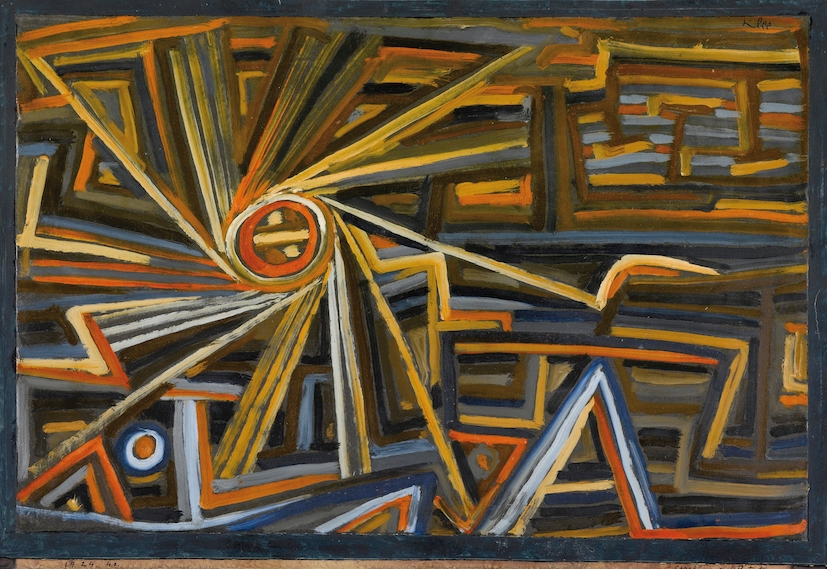 The Social Contract and the Welfare State: A Comparative Perspective
The Social Contract and the Welfare State: A Comparative Perspective
Edited by Laurence Louër
Choosing to look elsewhere makes it possible to take some distance from the assumptions of the literature on the welfare state that tends to consider more or less implicitly that the welfare state both results from and accompanies democracy, and that it requires an autonomous state that has strong “infrastructural power” as well as a formal labour market and functional financial markets. However, in many non-Western countries these prerequisites are far from being met: political regimes are often authoritarian and democracies often dysfunctional; the state has little capacity to penetrate society and implement public policies; the majority of jobs are in the informal sector; and markets—often dominated by oligopolies and monopolies—are strongly linked to political elites by patrimonial and clientelist dynamics. In addition, many developing countries are heavily dependent on international aid, including for their assistance policies for the poorest members of their societies. The articles presented in this Dossier each explore one aspect of these issues, based on countries in Africa, the Middle East, post-Communist Europe, and Latin America. Read more... -
Tom Lavers, Global Development Institute, University of Manchester
-
Marianne S. Ulriksen, University of Southern Denmark
-
Kevan Harris, University of California-Los Angeles
-
Laura Ruiz de Elvira, IRD/CEPED
-
Isabel Georges, IRD-Institut de recherche pour le développement
-
Borbála Kovács, Department of Global Studies, Université Aarhus, Danemark
10/2021
-
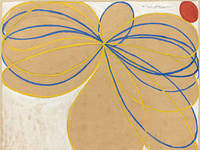 The State in the Middle East and North Africa (MENA):
The State in the Middle East and North Africa (MENA):
Dynamics and Diversity of a Moving Object
Edited by Eberhard Kienle
Ten years after large scale protests in numerous Arab countries drove home the importance of collective action, contestation, social movements, and other forms of politics from below, political actors and observers alike have once again shifted their attention toward the state—or what they consider as such. Even though it emphasises the state’s deficiencies or even absence, the—contested—concept of the “failing state” and its avatars refer to an entity called the state. The reaffirmation of authoritarian rule in such countries as Egypt, Algeria, Morocco, and more recently even Tunisia, ambitious “development” plans like Vision 2030 in Saudi Arabia and their attendant public policies, and the nuclear programme in Iran all illustrate the importance and impact of states, however conceived, defined, delineated, and composed. Continued military action or threats, as well as action to combat—or deny—the coronavirus pandemic, only confirm this observation...Read more
09/2018
-
 The Other Spring of 1968 – 50 years after
The Other Spring of 1968 – 50 years after
Edited by Jacques Rupnik“It seems to me that children in the next century will learn about the year 1968 the way we learned about the year 1848”. Before we are able to confirm Hannah Arendt’s observation, it appears that the year 1968 deserves – just as 1848 and 1989 – to be studied as one of the rare (warless) moments of the twentieth century that can be considered as truly trans- European and that was lived as such by Europeans themselves, at various degrees. Contrary to 1948, there was no dissemination or propagation from a centre (Paris, Frankfort, Vienna, Budapest and Prague). Yet the simultaneity of protest movements and their transnational dynamic do justify that we analyse them in a comparative and interactive way. With the Prague Spring as a starting point, the conference did not aim at tracing its history or at stressing its specificities. Rather, our objective was to focus on questioning the internal and external political order (the division of Europe) in order to explore the ideas and logics of protest that have circulated in Central-eastern Europe (Varsow, Prague, Belgrade...) as interactions and the result of misunderstandings that have occurred with West European movements (Paris, West-Berlin, Rome...)
The conference on The Other 1968 we are presenting here is not to be considered among the ongoing commemorative events. Rather, it is an invitation to reflect upon a turning point in the European History. It is a way to widen up, to decentre the many commemorations of the Parisian month of May where self-celebration of a generation on the brink of leaving mix with and a will to imitate, stimulated by a media in search of an opposition to government in power.
-
Petr Pithart (texte traduit du tchèque par Hélène Bourgois)
02/2018
-
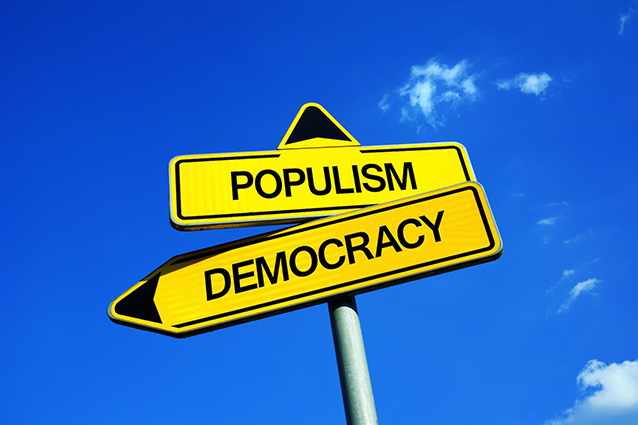 A Global Wave of Populism
A Global Wave of Populism
Edited by Alain DieckhoffJust like with nationalism, there is right wing and left wing populism. The phenomenon has, however, two distinct characteristics: its anti-elite and anti-pluralism dimensions, i.e. it's refusal of a democratic state in the name of the "real people"-defined through an ethno-cultural prism for right wing populists and through a social prism for left wing populists. There has been one significant evolution these last fifteen years: some countries are governed by real populist regimes who thrive for the return of a strong state (Hungary, Poland, Russia, Turkey, the Philippines, Venezuela). In other countries, yet the regime is not populist, its leaders have populist ambitions (Donald Trump, Narendra Modi) or its government allies with populist groups (Austria, Denmark). There is an implicit international alliance of populist parties and groups throughout the world, who oppose the liberal and cosmopolitan order, share ideas (a complex-free reaffirmation of sovereignty, defence of a strong national identity...) and push for a disruptive foreign policy..
-
Xavier Mellet
04/2017
-
 France’s Foreign Policy: the future President’s challenges
France’s Foreign Policy: the future President’s challenges
Edited by Christian Lequesne“Foreign policy doesn’t count in a French presidential election.” How often have we heard this statement, however completely false? It is false, first, for institutional reasons. The fifth Republic Constitution, and even more so the constitutional practice, gives the President responsibility for the major decisions and choices in terms of foreign policy and defense policy. No other public policy is so closely monitored by the Elysée, sometimes limiting the Quai d’Orsay and ministry of Defense to mere auxiliaries. The development of high rank diplomacy for the last thirty years (that Bertrand Badies calls, “club diplomacy”) has reinforced French idiosyncrasy. Except for periods of cohabitation, during which the task is shared with the Prime minister, representation of the position of France at the G20 and G8 are the President’s and his « sherpa’s » responsibility. The President is also in charge of the negotiations for the most delicate issues at the European Council with the 28 (and tomorrow 27) heads of state and government in the European Union...
-
Francesco Ragazzi
01/2017
-
 Contemporary perspectives on race in the United States
Contemporary perspectives on race in the United States
Edited by Daniel SabbaghThe issue of race in the United States is just as topical as ever, as reflected both in the emergence of the 'Black Lives Matter' movement - in response to instances of police brutality too frequent and too serious to be dismissed as isolated incidents - and to the surprising victory in November 2016 of a presidential candidate who had made disparaging statements about Hispanics. Those recent events have triggered a great many comments. Yet they are only the most striking evidence of the persistence of race as a multidimensional problem, a problem addressed by the complementary contributions brought together in the following symposium.
04/2016
-
 Turkey after the 2015 elections : Toward further instability and isolation?
Turkey after the 2015 elections : Toward further instability and isolation?
Edited by Bayram BalciWhile the AK Party, in power in Turkey since 2012, stumbled in parliamentary elections by hosting only 40% of the vote in June 2015—not enough to allow it to form a government alone—the holding of new elections in November the same year has given a clear majority to Recep Tayyip Erdogan, whose power continues to rise in the country. Despite this victory however, Turkish society remains very polarized, and the team in power is much criticized. As for regional policy, the country is more isolated than ever...
©Photo: Nub Cake
-
Bayram Balci
-
Benjamin Gourisse
-
Yohanan Benhaim
-
Jana Jabbour
-
Sinan Ülgen, Doruk Ergun*
01/2016
-
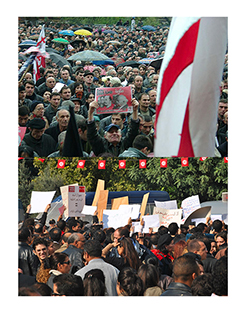 Can ‘color revolutions’ and the ‘Arab spring’ be compared?
Can ‘color revolutions’ and the ‘Arab spring’ be compared?
Edited by Anne de Tinguy and Jean-Yves MoisseronPopular protests have multiplied in East Europe as well as in the Arab world since 1989. East-European revolutions have swept away the European socialist camp in a few months time in 1989. Several “colored” revolutions have broken out in the post soviet space since 2003: the ‘Rose’ revolution in Georgia in 2003 and the “orange” revolution in Ukraine in 2004 lead to change in power; other revolutions have followed in Kirghizstan in 2005 and 2010 and Moldova in 2009 that have revealed the emergence of civil societies in the region. In 2011-12 in Tunisia, Egypt and Libya, “springs” have overthrown authoritarian regimes that had been in power for decades. In 2013-2014, Ukrainians protested against arbitrariness and corruption of power, again. The remarkable recurring aspect of such events suggests a domino effect that questions the observer. The issues that have been raised during the international conference organized in December 2015 with the “Plural Societies” program of Université Sorbonne Paris Cité are addressed in the articles of this dossier. The aim here is to question the mobilizations and transformations in the two neighboring regions of Europe by comparing facts, analyzes and approaches....
Introduction
- Peut-on comparer les ‘révolutions de couleur’ et les ‘printemps arabes’ ?, Anne de Tinguy, Jean-Yves MoisseronApport et limites de la comparaison
- Comparer « transitions » postcommunistes et révoltes arabes – Un point de vue semi-sceptique, Jérôme Heurtaux
- Les révolutions de couleur et les printemps arabes chez Francis Fukuyama : mêmes causes, mêmes conséquences ?, Pierre BourgoisProcessus et dynamiques des transformations
- How framing of revolutions (the Arab Spring and Maidan) takes us away from their roots during and after the protests, Nataliya Gumenyuk
- Ukrainian threefold revolution : from Soviet Ukraine to European Ukraine ?, Oleksii Polegkyi
- La grande transformation des pays d’Europe centrale et orientale : tous les chemins (r)évolutionnaires mènent-ils au capitalisme dépendant ?, Eric MagninLes acteurs externes
- Le discours néo-impérialiste et néostalinien des ‘conservateurs’ russes autour des ‘révolutions’ ukrainienne et géorgienne’ , -Cécile Vaissié
- La politique de voisinage de l’Union européenne face aux transformations politiques à l’est, Laure Delcour
- Les Etats Unis et l’islam politique. Composer avec les Frères musulmans égyptiens dans les révolutions arabes, Mohamed-Ali Adraoui
11/2015
-
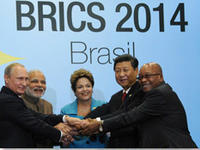 BRICS: Chronicle of a death foretold…but never observed
BRICS: Chronicle of a death foretold…but never observed
Edited by Christophe JaffrelotSkepticism toward emerging countries is widespread in the West yet the BRICS (Brazil, Russia, India, China and South Africa) were, in a sense, born West: was it not Goldman Sachs who created the acronym? Several countries have been going through economic turbulence, which even pushed Russia into the crisis and Brazil into recession. Yet China keeps a high growth rate, the bubble is about to explode and Shanghai’s stock exchange is dropping. India appears to be resisting, yet its incredible growth rate - partly linked with the way it is calculated - has neither triggered socio-economic development nor new job creations for the time being.
05/2015
-
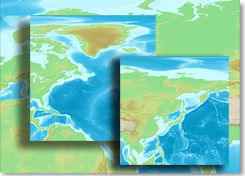 Area studies : A different approach to politics
Area studies : A different approach to politics
Edited by Alain DieckhoffWhat is the impact of area studies—based on an in-depth knowledge of a country or a macro-region—in a world of accelerating transnational dynamics? Should the very notion of cultural areas (or say regional areas, to be more neutral) be defended? If so, how can it be defended, considering that intercultural spaces multiply? How can cultural areas and academic disciplines be articulated? How can research be structured? What sort of academic training is to be elaborated and given if we wish to continue to form researchers as well as young specialists who will join private businesses, become journalists or humanitarians in China, Africa or elsewhere? These are among the crucial questions that this dossier aims at tackling, following the conference on area studies organized in November 2014 by several organizations, including CERI.
02/2015
-
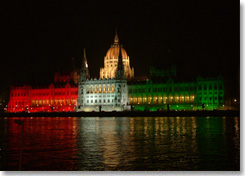 Central and Eastern Europe: The Democratic Disenchantment
Central and Eastern Europe: The Democratic Disenchantment
Edited by Jacques RupnikSince their membership to the European Union a decade ago, Central and Eastern European countries have been considered “consolidated democracies” by experts of democratic transitions, i.e. democracies in which governments rather than the regime itself are at stake during elections. Most of all, these are States in which the rule of law is respected. The situation of these countries varies a lot from that of western Balkan States or from the situation of their neighbors of the former post-soviet space.
Joining the club of democracies that the European Union represents was supposed to symbolize a completion of transition, and a point of no return. Yet it must be noted that there is no “end of history” in such matters and that the conditionality lever that had contributed to the setting-up of democratic institutions lost its efficiency once membership occurred, while simultaneously, the Union itself was—and still is—going through a crisis of democratic representation (oscillating between technocracy and the populist/nationalist temptation), that is no longer the sole problem of eastern countries but of all Member states, be it at different levels. Finally, and maybe above all, a general reflection on “democratic disenchantment” should in no way eclipse the great variety of situations that this Dossier allows to shed light on.
09/2014
-
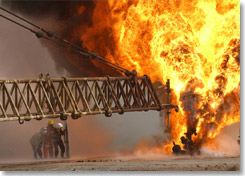 Energy Resources: Dependencies, Conflicts and Rules in the EU and Asia
Energy Resources: Dependencies, Conflicts and Rules in the EU and Asia
Edited by François Bafoil and Laurent BaechlerConsensus has been reached on the medium term exhaustion of fossil fuel resources. The gains in renewable energy are yet insufficient to compensate for the inevitable reduction of fossil supplies. In addition, energy demand is growing exponentially as a result of increasing dynamics of urbanization, motorization and industrialization, making consumer states everywhere largely dependent on producing countries. Security of supply has become a leading policy issue, both national and supranational. The objective of this Dossier is to examine one aspect of this major issue: the internal and external policies developed by the European Union (EU) and some Asian countries....
-
Ellennor Francisco
-
Aurora Ganz
04/2014
-
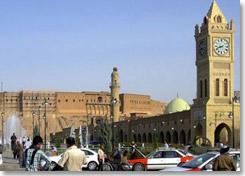 The Iraqi Kurdistan and the Kurdish issue in Middle East
The Iraqi Kurdistan and the Kurdish issue in Middle East
Edited by Olivier Grojean and Merve ÖzdemirkiranThis publication results from an academic conference held at CERI on November 22, 2013 under the scientific supervision of Nazand Begikhani, Hamit Bozarslan, Olivier Grojean, Akil Marceau and Luis Martinez. Focused on the latest evolutions of the Kurdish issue, the conference gathered some twenty scholars working on the four Kurdish-inhabited areas, in order to assess the consequences of the emergence of the de facto Kurdish State in Iraq upon the Middle East and amongst the Kurdish diaspora.
-
Olivier Grojean et Merve Özdemirkiran
-
Merve Özdemirkiran
01/2014
-
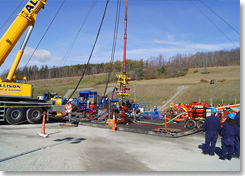 Shale gas, a controversial energy source
Shale gas, a controversial energy source
edited by François GemenneCould shale gas mark the beginning of an energy revolution? Since it was first exploited in the United States in the 1970s, shale gas has been the subject of many controversies, mostly because of the environmental impacts of the drilling process. Yet in January 2014 the European Commission gave its green light to the exploitation of shale gas on European soil. Despite this authorisation, France continues to refuse research permits and exploitation on French soil. This Dossier du CERI seeks to highlight the stakes of shale gas exploitation, and the reasons behind the controversies.
Légende photo : Forage gaz de schiste, Mansfield Pennsylvanie USA, 29 octobre 2013 – copyright François Damerval -
François Gemenne
-
Mathilde Mathieu, Olivier Sartr, Thomas Spencer
-
Kari De Pryck
-
François Damerval
-
Maxime Combes
10/2013
-
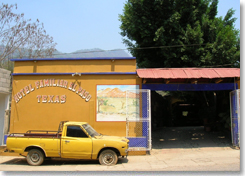 Borders and Migrations
Borders and Migrations
Edited by Catherine Wihtol de Wenden,The Borders and Migrations « dossier » connects two fields of research closely interrelated: borders are generally used to control migration and migrations are measured because there are frontiers, be they domestic, international or symbolic. Have we entered an era of « obsession with borders » like Michel Foucher would write it, or, on the contrary, should we see borders as the place for the definition of collective belongings, just as in Regis Debray’s In Praise of Borders ?.
Légende photo : Hôtel pour migrants à Camojà (Guatémala) – Copyright Argán Aragón -
Katarzyna Stoklosa*
-
Laurent Vinatier*
-
Argán Aragón*
-
Pavel Sitek*
-
Sylvain Beck*
-
Thibaut Jaulin*
07/2013
-
 Sahel and the Mali crisis
Sahel and the Mali crisis
Coordinated by Roland MarchalEarly July 2013, Mali is facing a number of challenges. The first and most sustantial one is that it needs to reconcile with itself through an electoral process that shouldtake place all over country on July 28 th. The second challenge is that Bamako will have to co-exist with a huge international operation whitch magnitude illustrates more the international concerns towards the political dynamics in the Sahara-Sahel region than a proper assessment of Mali's needs at this point in time.
Sahel and the Mali crisis, introduction, Roland Marchal
1 – Remettre en cause le sens commun
- « Mon pays S. A. » : un certain retour sur la démocratie exemplaire du Mali et sa déraison islamique, Gilles Holder
- Trafic ou commerce ? Des échanges économiques au Sahara contemporain, Judith Scheele
- Sahara et Sahel : ni incontrôlables, ni incontrôlés, Julien Brachet
- The New Resource Regionalism in North Africa and the Sahara, Geoff D. Porter2 – Le Sahel dans la crise malienne
- Mauritanie : la stratégie d’un ex-futur maillon faible, Zekeria Ould Ahmed Salem
- Comment être Malien ?, Naffet Keita
- Le Niger dans la crise malienne, Mamoudou Gazibo
- Sudan, the Sahel and the Sahara : the 99% Principle, Alex de Wall3 – Quels Etats pivots ?
- Libya - A Clouded Future, George Joffe
- L’intervention militaire tchadienne au Mali : enjeux et limites d’une volonté de puissance régionale, Gilbert Maoundonodji
- Insurgency and Counter-Insurgency in North-East Nigeria, Adam HigaziCarte : Les Etats du Sahel et leur environnement stratégique ( fin 2012, avant l’intervention Serval)
© photo : WFP/logistics
05/2013
-
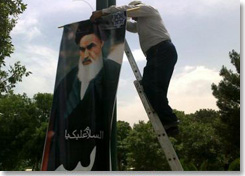 Iran: A Passed Time ?
Iran: A Passed Time ?
Coordinated by Fariba AdelkhahIt would be counterproductive to analyse the 2013 presidential election by comparing them to the 2009 election, especially since these latter was misinterpreted, as were the two mandates of Mahmoud Ahmadinejad (2005-2013).
It is clear that the 2009 polls' results were "electoral ingineering" as they say in Iran, less because of ballot stuffing than because of computer "corrections" of the 2005 figures in favour of the past president.
-
François Nicoullaud
-
Clément Therme
-
Thierry Coville
-
Gilles Riaux
-
Stéphane A. Dudoignon
-
Asal Bagheri










